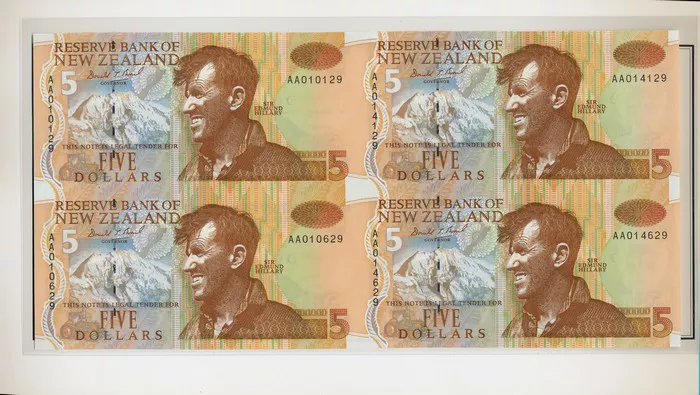The foreign exchange (forex) market is one of the most dynamic and liquid financial markets in the world, with trillions of dollars exchanged daily. For individuals and businesses engaged in international transactions, understanding currency exchange rates is crucial. One common currency conversion that often arises is from New Zealand Dollars (NZD) to Australian Dollars (AUD). This article explores how to determine the value of $100 NZD in Australian Dollars, the factors affecting exchange rates, and strategies to get the best exchange rate.
Understanding the NZD to AUD Exchange Rate
The exchange rate between the New Zealand Dollar (NZD) and the Australian Dollar (AUD) fluctuates due to various economic and financial factors. As of any given date, the rate is determined by supply and demand in the forex market. Typically, this rate is expressed as:
1 NZD=X AUD
If the exchange rate is 1 NZD = 0.92 AUD, then $100 NZD would be converted to:
100×0.92=92 AUD
However, exchange rates vary from minute to minute, and actual conversion rates depend on where and how you exchange your currency.
Factors Influencing the NZD to AUD Exchange Rate
Several key factors impact the exchange rate between the New Zealand Dollar and the Australian Dollar:
1. Interest Rate Differentials
Interest rates set by the Reserve Bank of New Zealand (RBNZ) and the Reserve Bank of Australia (RBA) influence the attractiveness of each currency. Higher interest rates in one country make that currency more appealing to investors, leading to appreciation.
2. Economic Performance
Stronger GDP growth, employment figures, and trade balances in either country impact exchange rates. If New Zealand’s economy is growing faster than Australia’s, the NZD may strengthen relative to the AUD.
3. Inflation Rates
Lower inflation in New Zealand compared to Australia would make the NZD more valuable, increasing its exchange rate.
4. Commodity Prices
Both Australia and New Zealand are commodity-exporting nations. Changes in global dairy prices (for New Zealand) and mining commodities (for Australia) influence their respective currencies.
5. Market Sentiment and Risk Appetite
Global economic conditions, geopolitical tensions, and investor sentiment toward risk assets influence forex markets. During times of uncertainty, investors may favor one currency over the other.
How to Convert NZD to AUD
There are various ways to convert NZD to AUD, and the method chosen can impact the final amount received.
1. Banks and Financial Institutions
Banks offer currency exchange services but often charge a margin over the mid-market rate. This means the rate you receive is slightly less favorable than the market rate.
2. Online Currency Converters
Websites like XE, OANDA, and Google Finance provide real-time exchange rates. However, these rates do not include fees or spreads that banks and forex service providers apply.
3. Forex Brokers
Forex brokers often provide competitive exchange rates, especially for large transactions. However, they may charge service fees.
4. Currency Exchange Kiosks
Airport kiosks and exchange bureaus offer convenience but usually at less favorable rates due to higher overhead costs.
5. Peer-to-Peer Exchange Services
Platforms like Wise (formerly TransferWise) use mid-market exchange rates with transparent fees, often offering better rates than banks.
Ways to Get the Best Exchange Rate
To maximize the value of your currency exchange, consider these strategies:
1. Compare Multiple Providers
Check different banks, forex brokers, and online platforms to find the best rate before exchanging money.
2. Avoid Airport and Hotel Exchanges
These services charge high fees and offer poor exchange rates.
3. Use Online Transfer Services
Online services like Wise, Revolut, or PayPal often provide better rates and lower fees than traditional banks.
4. Monitor Exchange Rates
If you have time before exchanging money, monitor trends and choose a favorable time to exchange.
5. Use Forward Contracts or Limit Orders
Forex traders and businesses can use forward contracts to lock in exchange rates for future transactions, mitigating risks of unfavorable rate changes.
Historical Trends of the NZD to AUD Exchange Rate
Over the past decade, the NZD to AUD exchange rate has fluctuated between 0.85 and 0.98 AUD per NZD. Major economic events, such as the COVID-19 pandemic, changes in commodity prices, and shifts in monetary policy, have influenced these fluctuations.
For example:
- In 2020, during the height of the pandemic, the NZD weakened against the AUD as Australia’s economic recovery was perceived as stronger.
- In 2023, stronger-than-expected GDP growth in New Zealand temporarily boosted the NZD.
Conclusion
The value of $100 NZD in Australian Dollars depends on the prevailing exchange rate, which fluctuates due to economic and financial factors. As of recent rates, $100 NZD typically converts to around 90–95 AUD, but this can vary. To get the best conversion rate, individuals should compare multiple exchange providers, use cost-effective methods like online services, and monitor market trends. Understanding these factors ensures better financial decision-making when dealing with currency exchange between New Zealand and Australia.
Related Topics:
- What is the Sole Goal of the Reserve Bank of New Zealand?
- What is the Purpose of the Reserve Bank of New Zealand?
- What Are the Powers of the New Zealand Reserve?


